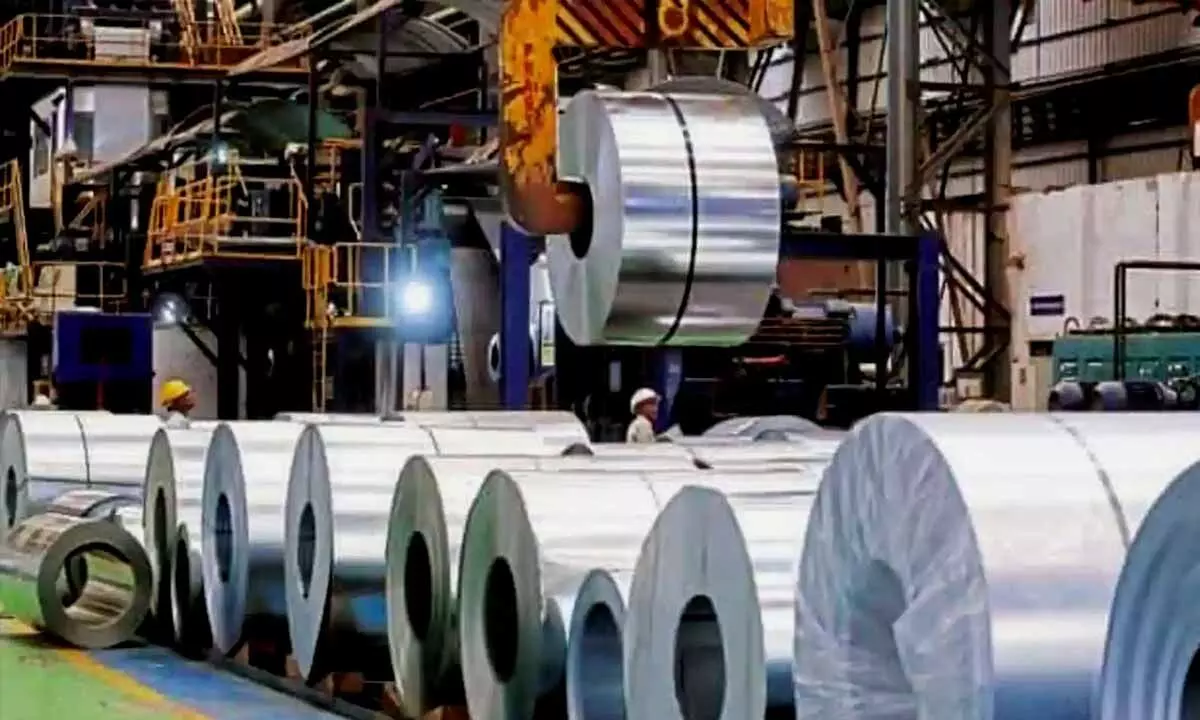High input costs taking toll on steelmakers' margins
Less than a month ago, steel major ArcelorMittal Nippon Steel India (AM/NS) had increased prices by around Rs500-1000 per tonne and other leading players like JSW Steel, Tata Steel and Jindal Steel & Power followed suit.
image for illustrative purpose

Less than a month ago, steel major ArcelorMittal Nippon Steel India (AM/NS) had increased prices by around Rs500-1000 per tonne and other leading players like JSW Steel, Tata Steel and Jindal Steel & Power followed suit. Actually after continuous week-on-week decline in steel prices for almost six months, domestic integrated steelmakers hiked the price of the alloy for the first time this financial year, indicating a probable bottom to the declining trend. Interestingly, however, this has to be seen in light of the fact that iron ore, sourced domestically and accounting for 15 per cent-20 per cent of the production cost, shed more than 50 per cent in price since May 2022 on account of increased domestic supply due to imposition of export duty of 50 per cent on iron ore and 45 per cent on pellets. The lower raw material prices, mainly global coking coal and domestic iron ore, may reduce production cost for domestic steelmakers by nearly 30 per cent in the second half this fiscal.
That's not all. Global coking coal, a key raw material that comprises nearly 40 per cent of the production cost and is usually imported by domestic steel manufacturers, has seen the price plummet from a historical high of almost $600 per tonne in March to close to $250 in August due to improved supply from Australian mines and weakening demand from global steel producers. The price is expected to remain benign as supply improves and the global demand outlook remains weak, if a recent Crisil report is to be believed.
Mind you that realisations have also fallen in the first half as export duty, coupled with a moderation in domestic demand, pulled down domestic steel prices nearly 25 per cent since April to nearly Rs57,000 per tonne in August. The first quarter of the fiscal witnessed significant decline in steel prices with high input costs. Though input prices have since corrected, its impact will be felt only towards the end of the current fiscal, leading to a subdued first half.
Global steel prices, on its parts, dropped close to 28 per cent as lockdowns in China impacted global demand. For the rest of the fiscal, global prices are likely to remain range-bound, amid a lifting of Covid restrictions by China and growing expectations of lower production curbs to meet decarbonisation goals in the second half. At least that's what experts at Crisil research feel.
When it comes to margin, the operating margin of domestic primary steelmakers is estimated to fall to 14 per cent-16 per cent in the first half of this fiscal, compared with a decadal high of close to 30 per cent for the whole of last fiscal, due to high input costs, lower realisations and imposition of export duty on finished steel products, among other reasons. In the second half of this fiscal, however, margin pressure is expected to ease - led by lower production cost because of declining raw material prices and steady realisations backed by robust domestic demand - lifting it above 25 per cent.

